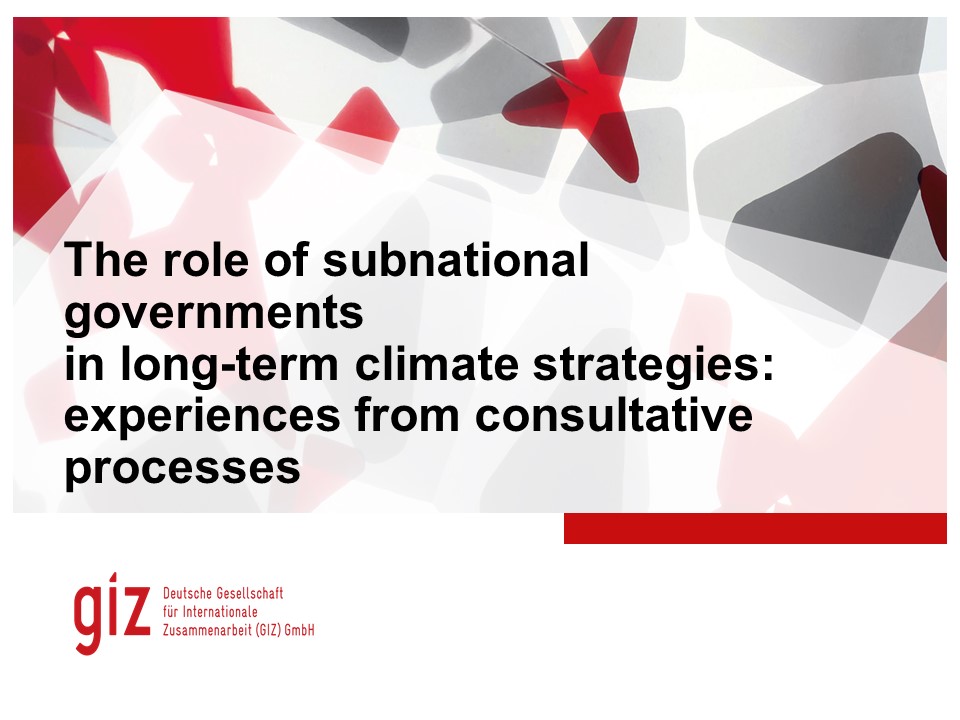Where
Online
When
6 July 2020
The role of subnational governments in long-term climate strategies: experiences from consultative processes
Webinar Summary
Subnational governments play a fundamental role in implementing climate action and achieving sustainable development. Home to half of the world’s population, cities and regions generate up 80% of global GDP and account for about 70% of global carbon emissions. Therefore, bringing local and regional authorities on board for long-term climate action represents key levers for developing a climate strategy. Through what is known as Collaborative Climate Action, the necessary policy process hinges on meaningful interaction between national and subnational governments, across sectors, and relevant stakeholder groups (e.g. business, academia, NGOs and civil society).
The Climate Policy Meets Urban Development (CPMUD) Project together with the Low Emission Development Strategies Global Partnership (LEDS GP) hosted a joint webinar for GIZ staff working on climate governance and urban development on 6 July 2020.
Jordan Harris, National Government and Climate Action Expert for COP25 at the Ministry of Environment in Chile, reported from Chile, which had just updated their NDC in April this year. Katarina Trstenjak, who is a policy expert at the Jožef Stefan Institute, shared her experiences from implementing a project under the national Life Climate Path 2050 that aims to enhance the use of quantitative analyses among decision-makers and stakeholders.



